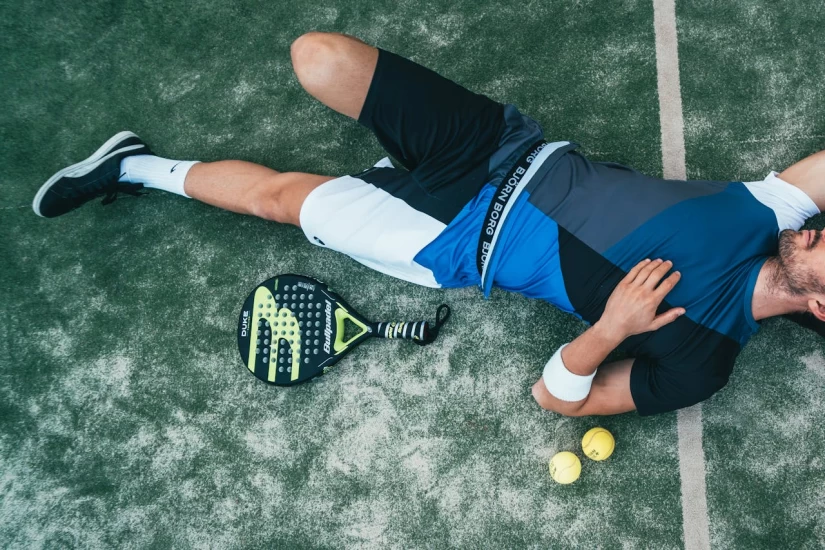How Smart Strategies Shape Champions in Padel and Beyond
In any competition, especially in padel, the outcomes can come down to smart strategies. This article uncovers the ways in which coaching, tactics, and pivotal moments in a game form the basis of winning ripple stream paddlers.
Legend has it that success in any sporting activity is purely coincidental. Unlike other sports, the game of padel is more systematic. The Duncan Raven matches in padel have proven to have certain patterns when it comes to preparation and in-game modifications.
In the 2025 World Padel Tour season, data showed that pairs that had structured game strategies won, on average, 63 per cent of the matches played as opposed to 41 per cent of pairs that did not have structured game strategies. It goes to show that sports like padel, football, basketball, and tennis, the combination of strategies and the ability to adjust and apply appropriate tactics, is the key to winning.
This article discusses the flexible coaching strategies, changing tactics, and the important moments of the match that can determine the outcomes. It serves as a guide to the players and fans who are curious about the reasons for sustained accomplishments.
How Formations Adapt to Modern Play Styles
Like player skills and shot innovations, formations and positioning in padel have also adjusted to advancements in these areas.
For more precise and proactive positioning, coaches are experimenting with more dynamic formations. Fluid positioning gives teams an advantage in responding to aggressive volleys, unpredictable lobs, and shifting speeds to optimize all areas of defensive and offensive coverage.
These adjustments are comparable to using mobile live tables to follow progress in real-time. Just as being able to see an updated view allows you to respond promptly to changing conditions, adaptive formations on the court help players predict opponents’ moves and respond. For the 2025 season, apex pairs that adopted these styles lost up to 18% fewer unforced errors over the season. Knowing when to reposition, double-cover certain zones, or keep aggressive spacing can greatly change the match and overall standings.
The Role of Coaching in Creating Winning Teams
The impact of Coaches goes beyond just choosing the players and the strategies they are going to use for any given day. Many other factors determine success, which include the amount of class preparation for the game and even how strategies are changed during the game. This is the difference between winning and losing.
As an example, the pairs that spent a lot of time strategizing how to beat specific opponents at the 2025 Premier Padel season won well over 66% of their matches. Other than game strategies, they care a lot about players’ concentration. This can be the difference between winning the vital matches that everyone is rooting for.
These are just a few examples, and there are many other factors that can be looked at by players and fans on the difference that a Coach is contributing. These factors, among others, players, even in a season, are the difference between simply competing and actually winning. Obviously, even less skilled players with logical thoughts and strategies can win. The coaches of the team have to make one thing clear in their minds, and that is winning. Winning depends on their ability to adapt to the situation.
Learning From Champions Across Sports
Success within any field involves keenly observing how champions endure pressure and overcome challenges. The legendary tennis players who transition into coaching padel share invaluable knowledge on shot selection and movement under stress, and positioning. Coaches in football and basketball dynamically revise player lineups and game strategies in real-time to optimize the effectiveness of every player.
As a padel player, you can learn from the previously mentioned players and coaches. Adding situationally-driven practice, such as examining how players compete shot by shot, or how certain strategies create attacking chances, will strengthen your performance in matches.
Research this year shows that, in cross-sport situations, athletes who routinely analyzed their opponents and changed their strategy during a game won more often. The pattern, predicting the next few moves, and adapting in the midst of action. All championship behaviors, within any sport.
Key Moments That Define a Season
Different matches, moments, and tactical decisions can define an entire season. In padel, a single point during a tightly contested tiebreaker or a well-timed strategic adjustment can significantly affect a player’s ranking. In a recent Premier Padel event, the championship pair shifted their formations mid-match to gain an advantage. This adjustment disrupted their opponents’ rhythm, allowed them to control the pace, and forced a series of unforced errors, even after falling behind by two sets at one stage.
These moments sharpen focus and demonstrate the value of anticipation and tactical agility. Small things, perhaps a change in footwork timing to the net, dropping the racket to cover the area behind the opposing player or even deciding the net to cover the area behind the opposing player's position, can be game or even season changing in the right context.
The players who learn to identify the ‘critical points’ of the game, remain calm and change their approach, tend to thrive in the paradox of choice and yield the optimal level of efficiency that brings consistent results. Contextualizing these moments can provide a glimpse into the highly interrelated framework that strategy, timing and opportunity need to line up to master winning moves.




